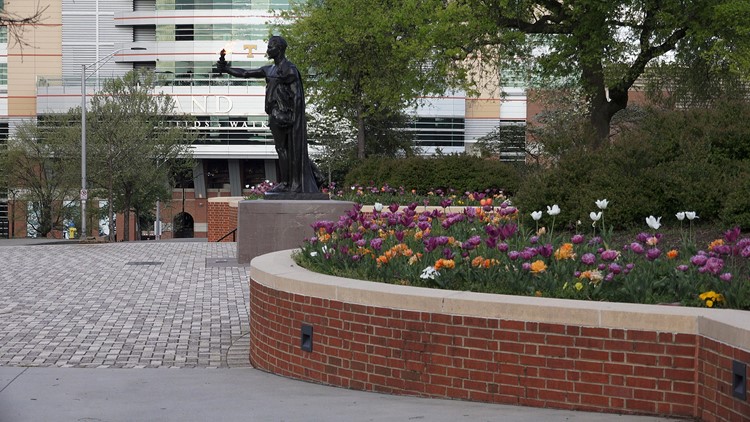KNOXVILLE, Tenn. — The University of Tennessee's new Institute of American Civics has a long list of members. They said Wednesday that two of those members include two former Tennessee governors.
Phil Bredesen served as the state's governor from 2003 through 2011 and was the 48th Democratic governor of Tennessee. He entered the office after years of work in the healthcare industry, culminating in the 1986 sale of controlling interest in HealthAmerica.
His first term focused mostly on healthcare, changing the TennCare system to reduce costs and prevent further spending. He scaled it back, and advocates at the time warned that it would leave more than 300,000 people without medical care.
"What we have has become unsustainable, and I am going through the very painful process of trimming it back to something our state can afford," he said in remarks made at the National Press Club, according to the Commonwealth Fund.
His second term focused mostly on education, notably signing two bills into law. The Tennessee First to the Top Act of 20210 was meant to improve student graduation rates and allowed the state Department of Education to intervene in consistently failing schools. It also required annual evaluations of teachers and principals.
The Complete College Tennessee Act was also meant to bring colleges and universities across the state closer together. It also positioned community colleges as central to future policies focusing on higher education.
He was succeeded by Bill Haslam, a former mayor of Knoxville. His platform was markedly Republican, focusing on economic development and conservative spending. He criticized the Obama-era Affordable Care Act, but could not organize a consensus among lawmakers before the deadline so the state entered the federal program by default.
However, in 2013 he announced that Tennessee would not expand Medicaid coverage to include more people under the federal poverty line.
In 2011, he also signed a bill that prohibited local governments from implementing their own anti-discrimination practices, HB600.
Both former governors will serve on the new Institute of American Civics at UT, accompanied by several other members. Those other members are listed below.
Baker Center Board Members
- A. B. Culvahouse, Of Counsel at O’Melveny & Myers and former US ambassador to Australia, serving as chair
- Marianne Wanamaker, professor of economics and executive director of the Baker Center, the University of Tennessee
Tenured Professors/Administrators/Professors of Practice in US Higher Education
- Danielle Allen, professor of government and director of the Edmond J. Safra Center for Ethics, Harvard University
- Arthur Brooks, William Henry Bloomberg Professor of the Practice of Public Leadership, Harvard Kennedy School; Professor of Management Practice, Harvard Business School
- Daniel Diermeier, chancellor of Vanderbilt University
- Amy Elias, Chancellor’s Professor, Distinguished Professor of English, and director of the UT Humanities Center, the University of Tennessee
- Robert George, McCormick Professor of Jurisprudence and director of the James Madison Program in American Ideals and Institutions, Princeton University
- Claudia Williamson Kramer, Probasco Chair of Free Enterprise, Professor of Economics, University of Tennessee at Chattanooga
- Jon Meacham, Carolyn T. and Robert M. Rogers Chair in American Presidency and co-chair of the Vanderbilt Project on Unity and American Democracy, Vanderbilt University
- Glenn Reynolds, Beauchamp Brogan Distinguished Professor of Law, the University of Tennessee
- Paul Stumb, president of Cumberland University
The institute is part of SB 2410, which would require UT to submit a report to legislators and the governor about "opportunities and challenges in civic education and engagement in Tennessee."
An amendment to the bill established the "Institute for American Civics" in Knoxville. According to the amendment, the institute would be meant to foster an understanding of the structures and institutions of state, local and federal government.
It would be able to enroll students, hire staff and develop courses in major and minor programs.It will also facilitate internships and hold events, while also being allowed to "take other actions as appropriate" with approval from the UTK chancellor and the UT System President, Randy Boyd.



